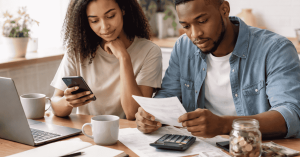The world of private equity has long been reserved for high-net-worth individuals and institutional investors. However, in recent years, a major transformation has been taking place. Small investors in the United States are gaining unprecedented access to private equity funds that were once out of reach.
This democratization of private equity is driven by a combination of regulatory evolution, financial innovation, and digital platforms. As barriers to entry fall, small investors are discovering that private equity can provide exposure to private markets traditionally known for strong performance and resilience during market volatility.
How Private Equity Became More Accessible

Until recently, the private equity market required minimum investments often exceeding $250,000, limiting participation to the wealthiest investors. Now, with the rise of fintech platforms and relaxed SEC regulations, smaller investors can enter with as little as a few thousand dollars. This inclusion marks a significant shift in how wealth can be built, especially as traditional markets like bonds.
Moreover, innovative financial firms have introduced fractional ownership models, allowing investors to buy smaller shares of private equity funds. This model mirrors the accessibility of ETFs or mutual funds, providing exposure to private companies. For many Americans, this represents a groundbreaking opportunity to diversify beyond the public markets and gain access to high-growth sectors.
The Growing Appeal of Private Equity
For small investors, the appeal of private equity lies in its potential for long-term growth and diversification. Private equity firms often target undervalued businesses, applying strategic management to increase profitability before selling them for significant returns. Historically, private equity funds have outperformed traditional stock portfolios, offering an attractive risk-reward balance for those with a longer investment horizon.
Additionally, as inflation and market uncertainty continue to affect traditional investments, private equity provides a hedge against volatility. Investors who diversify their portfolios with alternative assets like private equity often find more stability during economic downturns. This combination of potential growth and protection makes it increasingly popular among forward-thinking retail investors.
Key Benefits for Small Investors
Recognizing the primary benefits of this investment approach is essential to grasp its growing appeal among modern investors. By exploring its potential for higher returns, diversification, and long-term stability. Understanding the main advantages helps highlight why private equity has become a sought-after asset class:
- Higher return potential: Private markets can outperform public ones due to lower competition and inefficiencies.
- Diversification: Exposure to industries and businesses not traded publicly enhances overall portfolio balance.
- Long-term strategy: Private equity encourages patience and disciplined investment behavior.
Together, these factors open new financial pathways for ordinary investors who once had limited access to sophisticated investment options. By breaking traditional barriers, they allow individuals to participate in strategies previously dominated by large institutions and high-net-worth players.
The Future of Retail Private Equity
As technology advances and more platforms emerge, small investors will continue to benefit from opportunities that were once restricted to institutional circles. This democratization signals a pivotal shift in how Americans approach wealth accumulation, marking a new chapter in inclusive finance.
Ultimately, the expansion of private equity into the retail market represents both empowerment and responsibility. For investors willing to learn, diversify, and stay patient, this evolving financial frontier could redefine how personal wealth is built in the coming decades.
Risks and Considerations Before Investing
Despite its growing popularity, private equity is not without risk. It typically involves long lock-up periods, limited liquidity, and higher management fees compared to public funds. Furthermore, investors should carefully research fund managers and evaluate performance transparency before committing capital.
Platforms that facilitate retail access often provide detailed disclosures, but due diligence remains essential. Investors must also assess whether their financial goals align with the nature of private equity investments. Since these funds often require patience to realize returns, they are best suited for those with a medium to long-term strategy.



